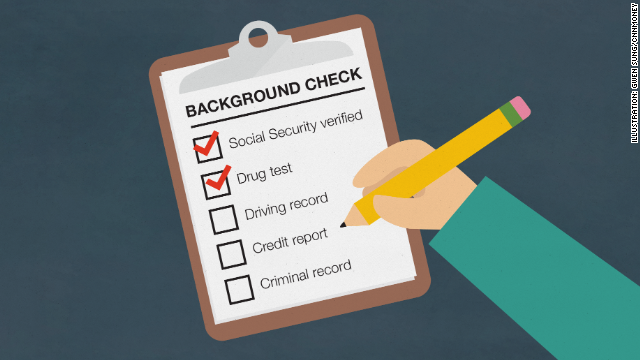Criminal record screening has been routine in the UK for many years for a host of professions, for example, teachers, solicitors, accountants, and anyone working with children or vulnerable adults.
However, Basic Disclosure and Barring Service (DBS) checks are fast becoming a hiring standard as organisations seek to protect both their brand reputation and their employees.
Alister Humphreys, SVP Strategic Growth at leading background screening organisation First Advantage, speaks to Dawn Gibson-Fawcett about the recruitment trend.
Dawn Gibson-Fawcett: Why has there been an increase in organisations requesting candidates go through criminal record screening?
Alister Humphreys: When you hire someone for your organisation, you want to be sure that the candidate is who they say they are – which is where identity verification comes in – and that what they have told you about their criminal background is credible and trustworthy – which is what a DBS Basic check can tell you.
As an employer, I want to ensure that a new employee is the right person and is not going to create issues with my existing workforce, my supply chain, my customers or partners. Carrying out Basic DBS checks as part of the recruitment process is one of the measures to protect organisations in terms of brand reputation and risk mitigation, but also assists with an overall programme for safeguarding employees.
DGF: What are the key priorities for employers?
AH: At First Advantage, we conduct an annual trends report to look at what employers feel are the key reasons for completing background checks. Previously, the most important aspects were speed and getting people into roles quickly, but in the past two years, the most important issue according to our survey has become risk mitigation. We join those two priorities together and say it’s about Hire Smarter. Onboard Faster®. A Basic DBS check can help establish trust quickly and securely, and it is easy to do.
Anecdotally, we’ve seen numbers continue to grow as employers seek ways in which they can help protect their brand, their employees, and their stakeholders. Figures from DBS show the same trend: requests for DBS Basic checks increased 50% between 2019 and 2022, from 1.77 million to 2.66 million.
From an employer’s point of view, prevention is better than cure. You can cut corners by not doing digital identity verification and criminal record screening for applicable job roles, but then it is likely to take management a lot more time and resources in future to deal with a potential issue which may well have been avoided, if revealed through background checks in the recruitment process.
DGF: What will show up on a basic DBS check?
AH: A Basic DBS check is a criminal record check that can be conducted on anyone aged 16 or older living or looking to live and work in England or Wales. DBS stands for Disclosure and Barring Service, the UK Government body which administers DBS certificates; Disclosure Scotland administers the equivalent system in Scotland while Access NI does so in Northern Ireland.
A DBS Basic check will let you know whether a job candidate has unspent convictions or conditional cautions. It won’t bring up fixed penalty notices, such as speeding fines or minor traffic offences, and it typically won’t include details of criminal offences committed many years ago for which the candidate has made retribution (spent convictions).
Employers are permitted to request a higher level of screening for roles that involve a higher level of risk, for example, those in a school or social care setting. In order of level of disclosure required, there are four levels: the Basic DBS check, Standard DBS check, Enhanced DBS check, and Enhanced with Barred List(s) DBS check. The higher screening levels above Basic DBS check require employers to demonstrate the role they are hiring for requires access to that level of sensitive information (“eligibility criteria”).
And, while DBS checks are confined to records in England and Wales, similar types of checks are available to employers who wish to check the background of candidates who have previously lived or worked outside the UK. Information available will depend on which countries candidates have lived or worked in.
You can cut corners by not doing digital identity verification and criminal record screeningfor applicable job roles, but then it’s likely to take management a lot more time and resources in future to deal with a potential issue which may have been avoided
DGF: How long does a Basic DBS check take? How much does it cost?
AH: Around 80% of Basic DBS checks are completed within 48 hours. If identity verification is carried out digitally versus the older manual paper process, that speeds up the process. Employers can expect to pay around £25 to £30 per candidate if they are using a registered body such as First Advantage, which includes the £18 UK Government fee.
It is a simple, straightforward process that can be completed online providing the candidate has standard identification documents such as a drivers licence or passport.
DGF: Are DBS checks suited to hiring at volume?
AH: Yes. A good example is retail; supermarket hiring, where tens of thousands of people are hired for peak periods such as Christmas every year. A Basic DBS check can verify the criminal background of a candidate very quickly, so you can hire an applicant within days. DBS Basic checks are also very useful for employers in the gig economy for the same reason.
A DBS Basic check (and their equivalent in Northern Ireland and Scotland) is applicable to employers hiring for any role in the UK, although it tends to be most useful for organisations hiring at volume, for example, in the retail, transportation and manufacturing industries, which are the broad growth sectors.
Given that it is a quick route to establishing an employee’s criminal background, I would be surprised these days if my employer did not want to conduct that check.
DGF: Does the candidate have the right to refuse to participate in a DBS check?
AH: Yes. Nobody is obligated to go through a DBS Basic application process. Equally, employers are allowed to ask about an individual’s criminal background. But if you have nothing to hide, then why would you not participate? It allows you to show your backgroundand it demonstrates that your employer cares about who they are employing.
DGF: Data privacy is a top concern for employers and employees. What safeguards are in place to ensure that my personal information won’t be shared with others if I give it to my employer?
AH: All organisations in the UK must adhere to the same strict rules and regulations around data privacy and UK GDPR.
As a registered body, First Advantage is signed up to the DBS Code of Practice. The DBSaudits the company’s practices on a regular basis to ensure our continued adherence to the Code of Practice, and, because we carry out these checks for thousands of employers every year, that should reassure individuals who are sending us their personal information that the check that is being carried out on them is appropriate.
Once a DBS certificate is sent to an employer, they are obligated to either store it securely or destroy it. In practice, the certificate is usually returned to the employee after the recruitment process is completed as it is of little further use to the employer.
The value of a criminal record check is a snapshot at a particular point in time, which is the reason why we recommend employers conduct recurring checks on employees, say, once a year or every three years, according to their HR policy and their regulations.
DGF: How does UK adoption compare to other parts of the world?
AH: Firstly, as First Advantage is a global organisation headquartered in the US, we have noticed more US employers performing background screening as part of their recruitment processes. It is difficult to compare the UK to the US due to the differences in applicable laws between US States, but appetite is noticeably increasing across both countries as employers seek ways to mitigate risk within their organisations.
We’re also starting to see the establishment of digital identity legislation in other jurisdictions, beyond the UK, such as Australia and Europe. It only seems to be heading in one direction.
DGF: Do you think the new UK government will be favourable to expanding and supporting these type of employee background checks?
AH: It is very early days, of course, but the indicators are that the new government will focus on digital identity screening, both for access to UK Government services but also to support speeding up hiring in line with its push for economic growth.
The legislation around digital identity, which is part of what is known as the Trust Framework, sits under the Department for Science, Innovation and Technology (DSIT). What I do know is that DSIT has a wide remit going forward, including incorporation of the government digital service. But overall, this is less about government, and more about hiring organisations.
To read more from Frist Advangatge click here







